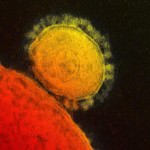Second Philippines case
Officials confirm Philippine’s second case of MERS in a 36-year-old man from Dubai, who flew to Manila on a flight from Dubai, after making a stopover in Saudi Arabia. He began showing symptoms and was admitted to the Research Institute of Tropical Medicine in Muntinlupa city, about 30km (18 miles) south of the capital, Manila, where he tested positive and was quarantined. The patient is recovering, but authorities continue to investigate those who he was in contact with.
Jail for avoiding quarantine
South Korea passes a law that imprisons people for up to two years if they defy quarantine orders when suspected of having an infectious disease. Police officers, firefighters, and other public workers will also help health investigators enforce the quarantine law. This is in response to the 181 confirmed cases and 31 deaths resulting from an infection by a 68-year-old man from the Middle East who withheld information from doctors in his itinerary. The quarantine law also publicizes information about a disease outbreak in response to criticism that South Korea delayed reporting of hospitals affected by MERS.
South Korean schools reopen
As MERS cases and deaths slow, South Korean schools reopen following recommendation by WHO. President Park Geun-hye also asks the people of South Korea to resume business as normal in response to the country’s revenue loss following the outbreak. Bin Ko-ok, a grandmother of a first-grader:
The child’s mother and I both work, so I think it’s better for kids to be in school where there can be proper measures, rather than keeping them home.
First South Korea deaths
South Korea’s health ministry confirms the first deaths of two people due to MERS. A 58-year-old woman, who had been treated as a suspected case of MERS, died of acute respiratory failure on June 29 and tests later came back positive for the virus. The other victim died on June 30, a 71-year-old man who was confirmed to have the virus several days ago. Six more people have been diagnosed with the disease, bringing the total number of people infected to 25 including the two victims. Acting Prime Minister Choi Kyung-hwan tells an emergency meeting of officials:
People believe that the health authorities’ response has been inefficient and poor. We should use all our national resources to alleviate their concerns.
First case in Bangladesh
0 CommentsBangladesh has its first case of MERS from a returning traveler. The Bangladesh native became sick two days after his return home. Health Officials suspect he caught the virus either in the Abu Dhabi airport or on the return plane. The patient’s health has improved, however he is still in intensive care. Bangladesh is the 22nd country to report a MERS infection.
Algeria death
0 CommentsAlgeria reports its first case of a death due to MERS. A 66-year-old man dies at a hospital after being on treatment since his diagnosis a month ago. His diagnosis is confirmed after returning home from a pilgrimage trip to Saudi Arabia. Health officials state: He is one of two people identified as having MERS after returning from Saudi Arabia. A 59-year-old man, the second confirmed case, is still being treated in a hospital, and his health has improved.
Possible MERS, SARS vaccine
0 CommentsResearchers at Purdue University pave the way to a vaccine for the SARS virus. Andrew Mesecar, team leader, says the research can also be used with other coronaviruses, including MERS, which shares common enzymes. Their findings include a method of disabling a part of the virus that is present in severe acute respiratory syndromes.
This is a first step toward creating a weakened and safe virus for use in an attenuated live vaccine…The goal in engineering a SARS virus that could be used as a vaccine is to create one that replicates in cells but is unable to fend off the body’s immune response.
Camels transmit MERS
0 CommentsResearchers track down the origins of the MERS virus in camels. The camels who belong to a MERS victim were found to carry a virus identical to that found in the human. The camels all passed the virus among themselves, but did recover. Researchers suspect the victim was infected after applying a medication to their noses to stop unusual discharge. Although camels can pass the virus to humans, researchers suspect that Egyptian tomb bats may be the origin. The bats have a similar genetic sequence as the human MERS virus.
The exact reservoir that maintains the virus in its ecological niche has yet to be identified.
Algeria confirms first cases
Two Algerian men, ages 66 and 59, test positive after returning from a pilgrimage to Saudi Arabia. The Algerian Health Ministry confirms the cases but gives no details as to the men’s condition.
No Hajj travel ban
After a five-day inspection, World Health Organization experts don’t recommend restrictions on travel to Saudi Arabia, including upcoming pilgrimages, although two deaths and 10 more cases are reported today. In Jeddah, WHO and Acting Health Minister Adel Fakeih launch a kingdom-wide public awareness campaign, urging the public to do frequent hand washing and sanitizing as well as to avoid contact with eyes, nose and mouth. The experts recommend cooking camel meat until well done and avoiding unpasteurized camel milk.
The government is doing its best to prevent the spread of the MERS coronavirus, which is why we need the help of residents in implementing simple precautionary measures to help curb the disease
